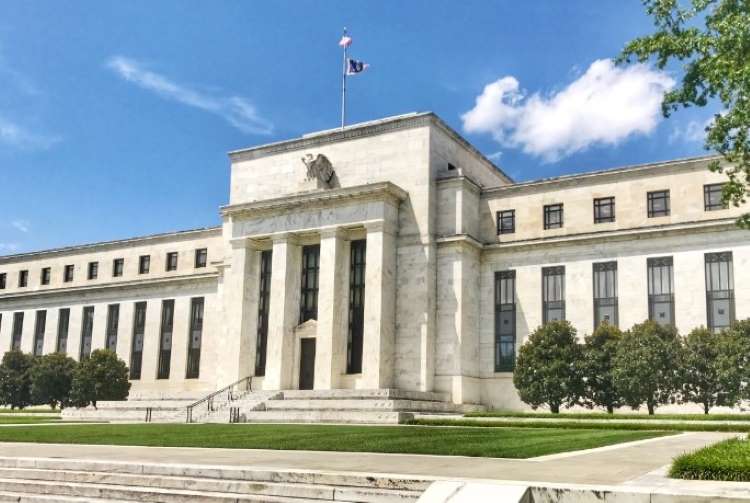US economy and the banking crisis: Switzerland’s largest bank UBS has agreed to buy smaller rival Credit Suisse in a $3.2 billion all-share deal. The deal, engineered by the Swiss government, has ended the panic in the global financial system triggered by the collapse of Silicon Valley Bank. The deal marks a dramatic fall for the 166-year-old institution which was, not so long ago, a symbol of Swiss pride.
The deal may have averted a full-scale global banking crisis for the moment. In the US also, the Federal Reserve has taken bold action to assure depositors of SVB and the other troubled banks. Still there are reasons to worry — several US banks have huge unrealised losses on their investment in bonds. There is also the issue of uninsured depositors. As the US cannot allow its banking system to collapse, one could expect hard-nosed action from the banking regulator.
An unresolved banking crisis has the potential to snowball into a full-fledged economic crisis. This possibility is giving sleepless nights to policy makers and businesses. Goldman Sachs has revised the odds for the US economy slipping into a recession — from 25% to 35%. Goldman had earlier cut the GDP growth outlook for 2023 by 0.3% to 1.2%.
READ I SVB collapse: The lessons for banks, regulators
Banking crisis hits US economy
The US economy has been successful in defying the post-pandemic pessimism. It also withstood the aftershocks of Russian invasion of Ukraine that led to supply chain disruptions and an energy price spiral. It coped with labour shortages, interest rate hikes to delay the onset of a global recession. But the banking crisis will test the resilience of the world’s largest economy and its thriving startup ecosystem.
The US government and the Fed are trying to avert a full-scale crisis. But these efforts will invariably mean higher interest rates that will affect investments and hirings. The banking crisis comes at a time when the US economy was struggling to navigate choppy waters. The fresh crisis has increased the likelihood of a recession.
United States Federal Reserve funds rate
All this has put the Federal Reserve in a tight spot. Its efforts to give the economy a softy landing by slowing growth has not been successful. Consumer prices continue to climb as evident in February numbers. And the fastest interest rate hikes in decades threaten to destabilise the economy. As Fed officials start their regular meeting today, there is consensus among economist that the central bank will continue with rate hikes.
This has spread panic among market players and businesses as they fear the rapid rate hikes will lead to a hard landing. Economists say that the cracks have started to appear in the US economy in the form of the banking crisis. The US businesses that are used to low interest rates are struggling to adjust to high interest rates.
If the US economy falls prey to the contagion of the banking crisis, the situation could snowball into a global crisis. The financial crisis is threatening to affect the nascent economic recovery in the US. The new year saw a rebound in consumer spending and housing market. The sentiment was marred by a series of sackings by technology firms, but job growth remained robust.
The banking crisis seems to be changing the scenario. While Goldman has raised the probability of a recession happening to 35%, other forecasters are even more pessimistic. The banks will tighten the lending norms in the aftermath of a series of collapses. This will definitely affect consumer sentiment leading to reduced spending in everything from consumer goods to residential property.
The Fed may achieve its objective of slower growth, but this could lead to a sudden loss of access to credit. This could have serious repercussions for the US economy. But the strong financial position of households and businesses may limit the damage to the economy.
The sudden collapse of banks has put the US economy at great risk. And high inflation refuses to subside even after a series interest rate hikes. This situation present a dilemma for policy makers at the Fed. Even if it decides to press the pause button, this may just for allowing the markets to stabilise. Once the market overcomes the fluctuations, the central bank may go back to its rate hiking spree.
Even if the Fed manages to contain a wide-spread financial collapse, the situation is not quite reassuring. Favourable comparisons are being made between the current crisis and the 2008 meltdown. Back then, it was not inflation, but falling prices were the biggest issue. Currently, core inflation in the US is refusing to ease, demolishing the argument that price rise is temporary. Also, the level of global debt also is seen as unsustainable.
The central banks and financial regulators are keenly awaiting signals from Fed which is set to announce its policy tomorrow. It is unlikely to announce a 50 basis point increase because of the uncertainties in the banking sector. It may opt for a lower 25 basis point increase and wait for the banking sector calm down before coming up with further rate action to tame inflation.

